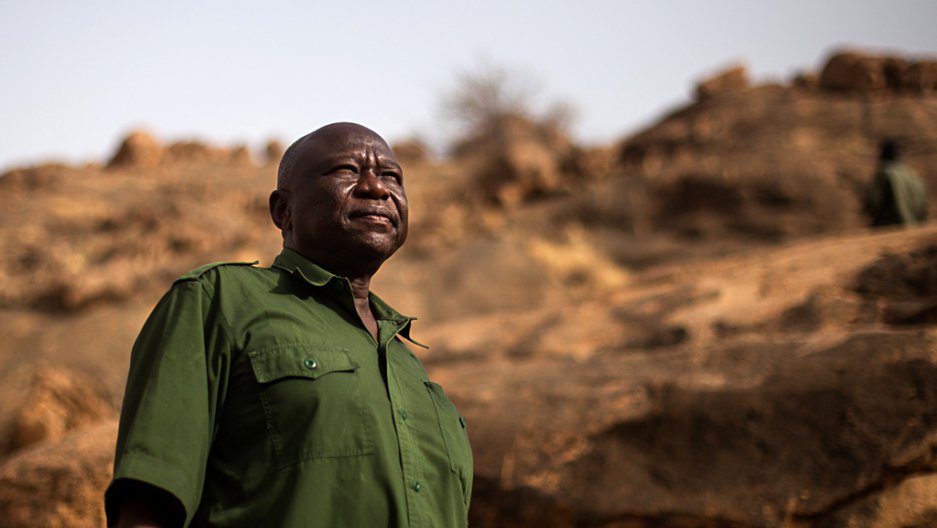SUDAN INSIDER |
This news summary is part of our Sudan Insider, a monthly newsletter providing news and analysis on Sudan’s biggest stories.
Subscribe here to receive the Sudan Insider in your inbox.
…………………………………………………………………………………………………………..
SPLM-N deputy resigns, status of rebel government questioned
The deputy chairman of the Sudan People’s Liberation Movement-North (SPLM-N), Abdel-Aziz Hilu, presented his resignation from the movement on March 7 citing differences between him and the executive leadership and lack of institutional measures to develop the SPLM-N movement.
In a 12-page resignation letter, Hilu cites the fact the SPLM-N never completed a manifesto to guide their political activities. Further, a national liberation council, ostensibly designed to uphold the principles of the movement and oversee the regional councils, was never established.
Hilu also claims he was marginalized in the decision-making process of the SPLM-N executive, including in the peace negotiation process and the deputy’s demand for the right to self-determination for the region. The Deputy Chairman accuses Secretary General Yasir Arman, who is head of the SPLM-N political party of overstepping his position in a number of areas. Hilu also acknowledged his long tenure at leadership may prove a weakness to the movement and offered his resignation.
So far, no concrete decision has been made whether Hilu’s resignation will be accepted. But the Nuba Mountains Liberation Council, a regional body for the rebel movement in South Kordofan State, has endorsed Hilu’s demand for the right to self-determination for the region and withdrew confidence in Secretary General Yasir Arman in relation to the peace negotiation process. The regional council also called for a national conference within two months to establish a manifesto for the rebel movement and elect members for the national liberation council, which encompasses the SPLM-N leadership from both areas: South Kordofan and Blue Nile states.
SPLM-N Chairman Malik Agar said the rebel movement would adhere to the unilateral cessation of hostilities declared earlier. Both Agar and Arman traveled to South Kordofan on 25 March to meet other SPLM-N leaders and reach a negotiated settlement.
What it means…
Opinions are divided as to whether the SPLM-N deputy chairman’s decision to resign will trigger further divisions within the rebel movement or introduce key institutional reforms. Hilu’s calls for more transparency and collective decision-making, among other changes, has reverberated favorably with the public in South Kordofan and the Nuba Mountains Liberation Council – suggesting more broadly felt grievances with the direction of the rebel movement.
While Hilu’s statement expressed solidarity with the Blue Nile rebel soldiers, the letter did not focus on Blue Nile State or the SPLM-N Chairman, Malik Agar –but focused on the Nuba Mountains region. The Nuba Mountains Liberation Council’s decision to endorse Hilu’s recommendations is therefore not binding.
If indeed Secretary-General Yasir Arman is removed from leading the peace negotiations as supported by the regional liberation council, a major shift in the rebel movement’s negotiation stance will take place. A new team set up to mediate with the government may demand the right to self-determination and the assurance of the SPLA-N army remaining independent from Sudan Armed Forces [SAF] integration. Some leaders in the SPLM-N complain that Arman was too conciliatory with Khartoum and believe upholding the demands mentioned above would embolden their negotiating position.
Hilu’s resignation and subsequent dialogue comes at a time when Sudan enjoys considerable international support and a position of strength at the negotiation table. By July, the US may decide to permanently remove longstanding economic sanctions and several European and Middle Eastern countries are establishing closer political and economic ties, disregarding Sudan’s poor human rights record.
The ruling National Congress Party and supportive media in Khartoum have persistently pointed to the divisions within the SPLM-N after Hilu offered his resignation – claiming the movement is in disarray. The fact that the top leadership is currently addressing the issue, however, would suggest the SPLM-N might overcome these differences. The head of the leading opposition party, the National Umma Party (NUP), Sadig al-Mahdi, said his party would help to contain any differences within the SPLM-N movement.





